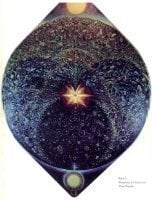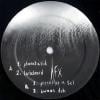IGNORED
Aphex Twin A thought about the process of learning as a musician
- Search posts by...
- Reply to this topic
- Ignore this topic
- Stop ignoring this topic
- Start new topic
-
Recently Browsing 1 Member
-
Similar Content
-
- 1 reply
- 225 views
-
Music From The Merch Desk (2016-2023) [compilation] 1 2 3 4 12
By thumbass,
- Aphex Twin
- afx
- (and 2 more)
- 296 replies
- 24,446 views
-
- 1 reply
- 992 views
-
- 12 replies
- 1,838 views
-
Aphex Twin - Blackbox Life Recorder 21f / in a room7 F760 [WAP480C] (July 28, 2023) 1 2 3 4
By Rubin Farr,
- Aphex Twin
- AFX
- (and 1 more)
- 95 replies
- 17,677 views
-









Recommended Posts